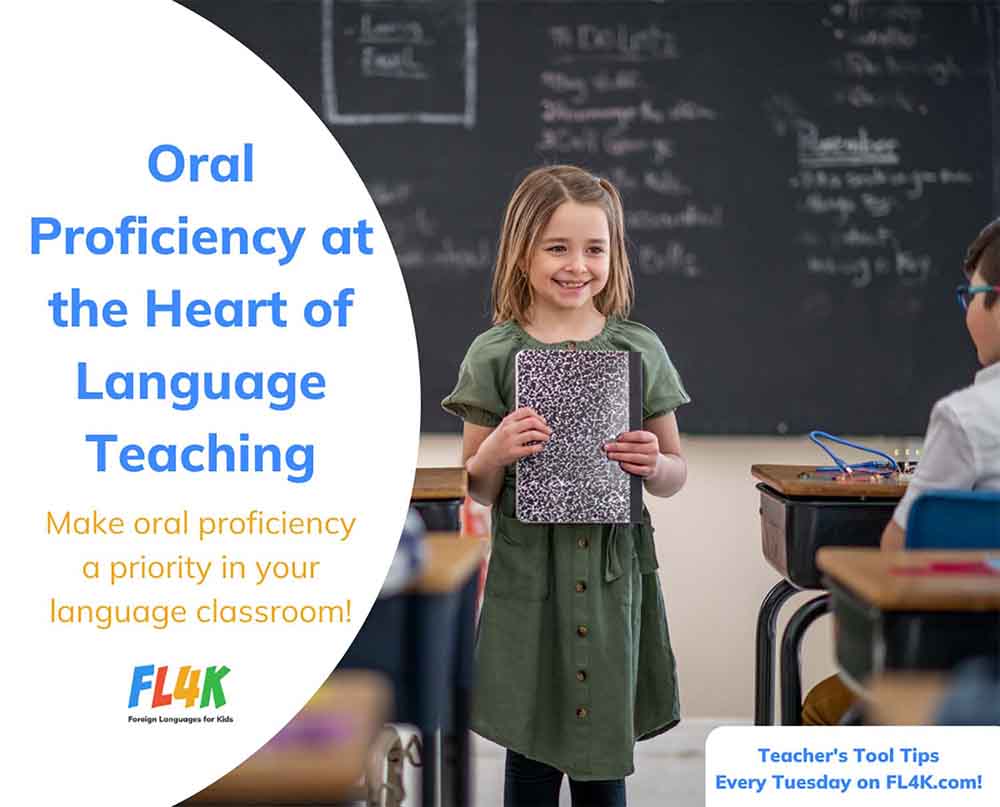In my last few posts, I mentioned the two biggest take-aways from my 43-year tenure of teaching:
1.) Make your classroom a can-do classroom, inviting every student to make progress toward building skills;
2.) Building relationships with your students is one of the most important secrets of successful teaching;
3.) Keep your classes student-centered, building community among your students.
In the next few posts, I am going to delve into what it means to have an ACTFL-aligned curriculum both in terms of proficiency standards and World-Readiness Standards.
Oral Proficiency
Making oral proficiency a priority in my classroom was a game-changer for my students and me. I came from a very traditional background of grammar-based teaching with high expectations for my students. I had my masters in language and literature and truly had much knowledge to impart to my students.
The best and brightest thrived in my classroom. They learned their verb tenses and all the rules for the subjunctive. I was always proud of how I pushed them to learn and they succeeded. The only problem was that they weren’t really learning to speak the language and, except for the linguistically talented and extra studious, many of them did not feel successful at learning the language system in all its intricacies.
Then, another colleague and I had the opportunity to head up our K-12 language department. We were excited to explore the path to oral proficiency with our students. We sponsored a MOPI workshop on our campus and consulted with some of the best in our field, Helena Curtain and Greg Duncan.
When the consultants did a walk-through of our K-12 program, they saw very little of the kind of teaching that promotes oral proficiency. Our classrooms were too teacher-centered and grammar-focused. Our lesson plans were lacking in interactive activities with ample opportunities for our students to practice speaking. During the MOPI workshop on our campus, we learned in-depth the meaning of the terms novice, intermediate, and advanced with the gradations of low, mid, high. We observed live interviews and learned how to evaluate language proficiency. Most all of us went on to get our ACTFL MOPI certification that truly helped put us all on the same page. Several of us even traveled on a grant to Singapore to see a world-class K-12 oral proficiency-driven language department.
Implementation
Once all in our department members decided to prioritize oral proficiency in our classrooms we were able to write a mission statement and decide on best practice guidelines for all K-12 teachers in our program. It was such a relief to begin to eliminate all that interdepartmental competition and dispute about who was a “good” teacher. We threw out our grammar-driven textbooks and all began to work towards a skill-based curriculum, designing our own units based on mutually chosen themes, carefully scaffolded vocabulary, and chunks of communicative language.
After a few years of this messy process, we finally adopted a text published by Wayside Publishing Company in both Spanish and French, Entreculturas/Entrecultures. It is not perfect! What we have loved about it is that it is AP and IB themed; the focus of the book is on oral proficiency with many opportunities for the students to listen and speak, and there is ample comprehensible input with a variety of readings that have intercultural themes, and much more.
There is no magical textbook that will do the teaching for us! The truth is that we have to hone our teaching skills, making sure that we provide interactive activities every day that invite students to practice their language skills. We need to give them ample opportunities to record themselves doing mini-dialogues and conversations. We need to reduce the size of vocabulary lists and the expectations for rote memorization, taking the emphasis off of grammar and grades and putting the emphasis on real-world communication skills!
This shift can be magical! After all, how many adults do you know that say they studied a world language for years and can’t say a word? Let’s change that!
While you wait for next week’s teacher’s tool tip, check out our other blogs on language, and be sure to follow FL4K on social media through the links at the very bottom of this page so you don’t miss the next Tool Tip and other language fun!
Missed my past Tool Tips? You can read about the Can-Do classroom, the importance of building relationships with your students, and the Student-Centered Classroom on FL4K.com right now!
